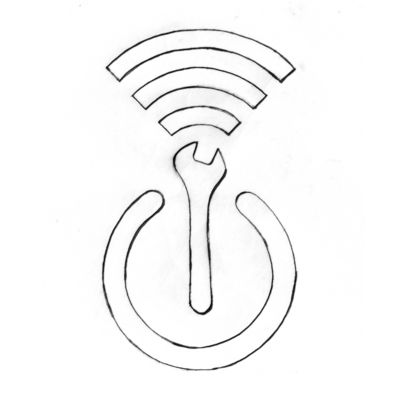A bi-weekly talk show by The Restart Project, plus a monthly documentary series produced by brilliant podcaster Dave Pickering, based on fixing triumphs, heartbreaks and wisdom shared at our community repair events – called Restart Parties – here in London. We go into real depth about good and bad design, obstacles to repair of electronics, emotional aspects of ownership, environmentally irresponsible business models, and the “end of life” of our gadgets. This podcast is for you if you'd like to fix your relationship with electronics. Let’s rethink, restart.
https://therestartproject.org/podcast/
Restart Podcast Ep. 25: Goodbye iSlave (Pt.2)
[soundcloud url="api.soundcloud.com/tracks/345141393" params="color=ff5500&inverse=false&auto_play=false&show_user=true" width="100%" height="20" iframe="true" /]
Download: 27 MB
Subscribe:
RSS |
SoundCloud |
iTunes
This week’s episode picks up where we left off last week, with part 2 of our podcast special with ‘activist academic’ Jack Qiu.
In his new book ‘Goodbye iSlave: a Manifesto for Digital Abolition’, Jack argues that while slavery has certainly mutated from the horrific forms that it took in past, the systems of production and worker exploitation underpinning electronics manufacturing must be considered as forms of modern-day slavery. In Part 1, he tells the story of the coercion of student workers in China, and explains how our addiction to online content – the new ‘sugar’ – fuels this exploitation. You can catch up here if you missed it last week.
In this week’s episode, we hear about some of the political and legal circumstances that make it easy for Foxconn factories to go unchallenged on mainland China – leaving workers subject to abuse, and tech giants untouchable.
Image source: https://www.facebook.com/HKSACOM/Jack aims to bridge what he sees as the large information gap that exists for most consumers of ‘AppConn’ products. We spoke to people who have recently attended our Restart Parties in London to see if the exploitation of workers in China is something people think about when they buy electronic products.
But even people who are aware of the issues surrounding the production of their phones, laptops and tablets felt somewhat powerless to stop it. Who is ultimately responsible? It is impossible to point the finger at every owner of an Apple product. As one of our interviewees put it, that would be “like blaming smokers for being smokers”.
At Restart, we like to say that the most ethical phone is the one you already have: the longer you hold on to your iPhone, the more ethical it becomes. And rather than thinking about our relationship with electronics in terms of individual consumers, we need to think about ways in which our collective needs bring us together as a community.
Looking back through history, Jack Qiu draws attention to the fact that wherever we find slavery, we also find anti-slavery. He believes that there are lessons to be learned, and hope to be gained, from examining the work done by abolition movements, both in London and elsewhere. He also talks about some of the contemporary ways that the dominant models of exploitative production are being challenged, such as Fairphone’s effort to demonstrate that it is possible to make an ethical smartphone.
Jack Qiu is a member of SACOM: Students and Scholars against Corporate Misbehaviour. Visit their website for information about their current campaigns and investigations.
Links:
- Goodbye iSlave: A Manifesto for Digital Abolition
- ZDNet: Foxconn pulls out of Brazil
- Fairphone
The post Restart Podcast Ep. 25: Goodbye iSlave (Pt.2) appeared first on The Restart Project.
